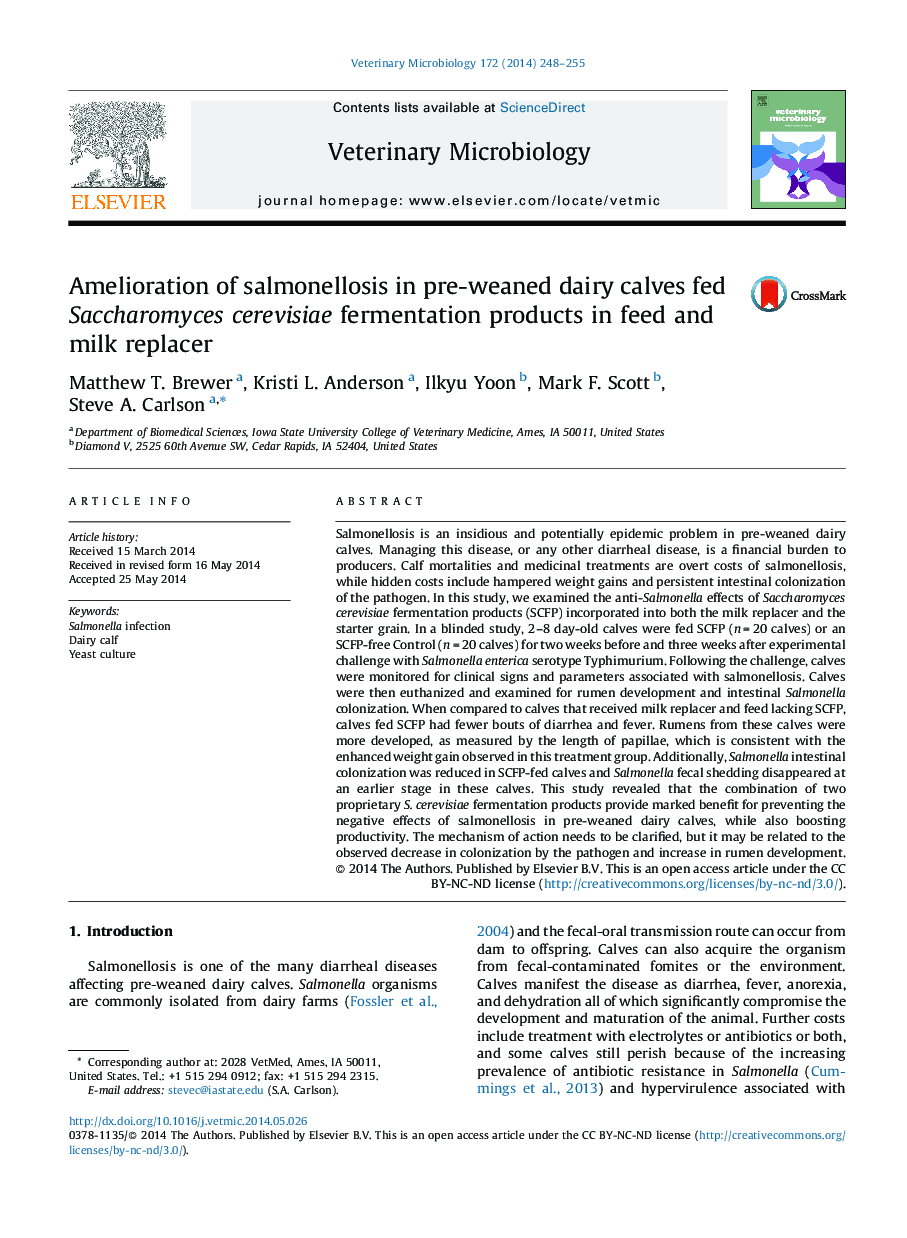| Article ID | Journal | Published Year | Pages | File Type |
|---|---|---|---|---|
| 5800835 | Veterinary Microbiology | 2014 | 8 Pages |
â¢We examined the anti-Salmonella effects of Saccharomyces cerevisiae fermentation products (SCFP) incorporated into both the milk replacer and the starter grain.â¢Calves fed SCFP had fewer bouts of diarrhea and fever.â¢Rumens from these calves were more developed.â¢Salmonella intestinal colonization was reduced in SCFP-fed calves.â¢The combination of two proprietary S. cerevisiae fermentation products provide marked benefit for preventing the negative effects of salmonellosis in pre-weaned dairy calves, while also boosting productivity.
Salmonellosis is an insidious and potentially epidemic problem in pre-weaned dairy calves. Managing this disease, or any other diarrheal disease, is a financial burden to producers. Calf mortalities and medicinal treatments are overt costs of salmonellosis, while hidden costs include hampered weight gains and persistent intestinal colonization of the pathogen. In this study, we examined the anti-Salmonella effects of Saccharomyces cerevisiae fermentation products (SCFP) incorporated into both the milk replacer and the starter grain. In a blinded study, 2-8 day-old calves were fed SCFP (n = 20 calves) or an SCFP-free Control (n = 20 calves) for two weeks before and three weeks after experimental challenge with Salmonella enterica serotype Typhimurium. Following the challenge, calves were monitored for clinical signs and parameters associated with salmonellosis. Calves were then euthanized and examined for rumen development and intestinal Salmonella colonization. When compared to calves that received milk replacer and feed lacking SCFP, calves fed SCFP had fewer bouts of diarrhea and fever. Rumens from these calves were more developed, as measured by the length of papillae, which is consistent with the enhanced weight gain observed in this treatment group. Additionally, Salmonella intestinal colonization was reduced in SCFP-fed calves and Salmonella fecal shedding disappeared at an earlier stage in these calves. This study revealed that the combination of two proprietary S. cerevisiae fermentation products provide marked benefit for preventing the negative effects of salmonellosis in pre-weaned dairy calves, while also boosting productivity. The mechanism of action needs to be clarified, but it may be related to the observed decrease in colonization by the pathogen and increase in rumen development.
